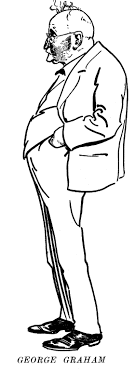The Impactful Career of George Graham in Football Management

Introduction
George Graham, a renowned football manager and former player, is a significant figure in English football history. His managerial career, notably with Arsenal and Tottenham Hotspur, has shaped the landscape of the Premier League. Understanding his contributions not only highlights his personal influence on football but also reflects the evolution of club management in the UK.
Early Life and Playing Career
Born on 30 August 1944 in Morpeth, Northumberland, George Graham began his football journey as a player. He showcased his talent at Newcastle United before moving on to play for clubs like Arsenal and Brighton. His playing style was characterised by tenacity and tactical awareness, traits that would later define his management approach.
Managerial Tenure and Achievements
Graham’s managerial career took off at Millwall, where he established himself with a solid performance. However, it was at Arsenal from 1986 to 1995 that he became a household name. Under his leadership, Arsenal won two First Division titles, an FA Cup, and the coveted European Cup Winners’ Cup in 1994. His teams were known for their strong defensive organisation and counter-attacking football.
In 1995, Graham’s controversial move to arch-rivals Tottenham Hotspur shocked the football community. His time at Spurs was mixed, but he managed to secure another trophy, winning the League Cup in 1999.
Coaching Philosophy
George Graham is often praised for his tactical acumen and ability to instil a winning mentality in his players. He emphasised strict discipline, a robust defence, and effective use of set pieces, which are tactics that have influenced many contemporary managers. His approach to player management and development also underscored the importance of a strong work ethic, which he expected from everyone in his squad.
Legacy and Current Relevance
As of now, George Graham’s legacy continues to be felt in the footballing world. Many current managers regard him as a mentor and source of inspiration. His success paved the way for future generations of tacticians in the Premier League, and his impact is still studied in coaching courses and discussions about football management.
Conclusion
George Graham remains an iconic figure in football, demonstrating how effective management can drastically change a team’s fortunes. As the Premier League continues to evolve, the principles and strategies employed by Graham still resonate, reminding us of the importance of strong leadership in sports. His life and career serve as an eternal testament to hard work and tactical intelligence, qualities that aspiring football managers strive to emulate.









